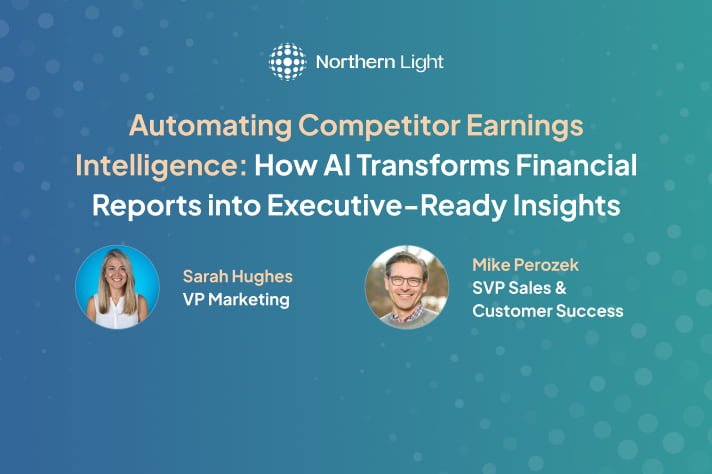GenAI is no longer experimental. It’s shaping product roadmaps, investment strategies, and competitive positioning. But as adoption surges, so does the risk: What happens when strategic decisions are made by AI systems trained on disconnected, unvetted, or misunderstood data?
AI governance is emerging as a defining capability for forward-looking strategy teams. It’s not just about compliance. It’s about confidence, context, and control in an era where AI-driven decisions can make or break a company’s future.
From Buzzword to Boardroom: What AI Governance Really Means
AI governance refers to the frameworks, processes, and tools that ensure AI systems are transparent, trustworthy, and aligned with enterprise goals. At its core, it means putting guardrails in place for how data is sourced, models are trained, insights are delivered, and decisions are audited.
In the GenAI era, this goes beyond risk mitigation. For strategy teams, governance is about ensuring the recommendations coming from AI are:
- Sourced from trusted content
- Contextualized to the business
- Traceable and explainable
Think of it as the strategic operating system behind your intelligence engine.
Why AI Governance Is Now a C-Suite Imperative
As more organizations embed GenAI into market intelligence, M&A scouting, and scenario planning, the consequences of getting it wrong escalate quickly. One bad decision based on flawed AI output can lead to missed acquisitions, brand damage, or failed bets in new markets.
C-suite leaders increasingly recognize that GenAI governance is not just an IT concern. It’s a strategic priority:
- Boards are asking how AI is used to inform decisions.
- Strategy leaders must validate that recommendations are grounded in verified, relevant data.
- Compliance teams require audit trails on automated decisions.
In short: No governance, no trust. No trust, no strategic advantage.
The Hidden Risks of Poor AI Governance in Enterprise Strategy
Despite good intentions, many companies are still feeding their AI systems with:
- Content buried in silos
- Duplicate or outdated research
- Unverified third-party sources
Without visibility or curation, these models generate recommendations that appear smart—but are disconnected from enterprise context.
This results in:
- False confidence: Decisions made on flawed insights
- Blind spots: Critical information excluded due to lack of metadata or tagging
- Wasted investment: Millions spent on GenAI without operational value
The Intelligence Engine Advantage: Making GenAI Enterprise-Ready
Northern Light’s SinglePoint platform offers a governed, AI-powered knowledge environment purpose-built for strategy.
It addresses the governance gap with:
- Unified content ingestion: Integrates internal research, external subscriptions, and analyst reports into one searchable portal
- Enterprise taxonomy: Organizes information so AI can surface relevant, precise answers
- Retrieval-Augmented Generation (RAG): Ensures GenAI outputs are grounded in trusted content—not internet guesswork
- Auditability: Creates transparent logs of what sources informed which recommendations
This is what separates AI experimentation from strategic enablement.
What Strategy Leaders Need to Know: FAQs on AI Governance
Isn’t AI governance just an IT or compliance issue?
No. While IT and compliance play roles, the strategic risk of ungoverned AI is now a board-level concern.
How can strategy teams influence governance?
By partnering with KM and CI leads to define what "trusted content" looks like and ensuring AI systems reflect enterprise priorities.
What frameworks should we align to?
Common models include NIST's AI Risk Management Framework and ISO/IEC 42001. But execution depends on your intelligence infrastructure.
What does "governed GenAI" look like in practice?
It's when your AI system:
- Surfaces research your team has already paid for
- Tailors insights to your strategic goals
- Audits itself so decisions can be explained
AI Governance Is the Key to Strategic Confidence
In 2026, strategy teams won’t be judged by how much data they collect, or how many GenAI pilots they run. They’ll be judged by the clarity and quality of their decisions.
AI governance ensures that GenAI isn’t a black box—it’s a trusted partner in enterprise strategy. With the right intelligence engine, your organization doesn’t just adopt AI. It operationalizes insight at scale.






